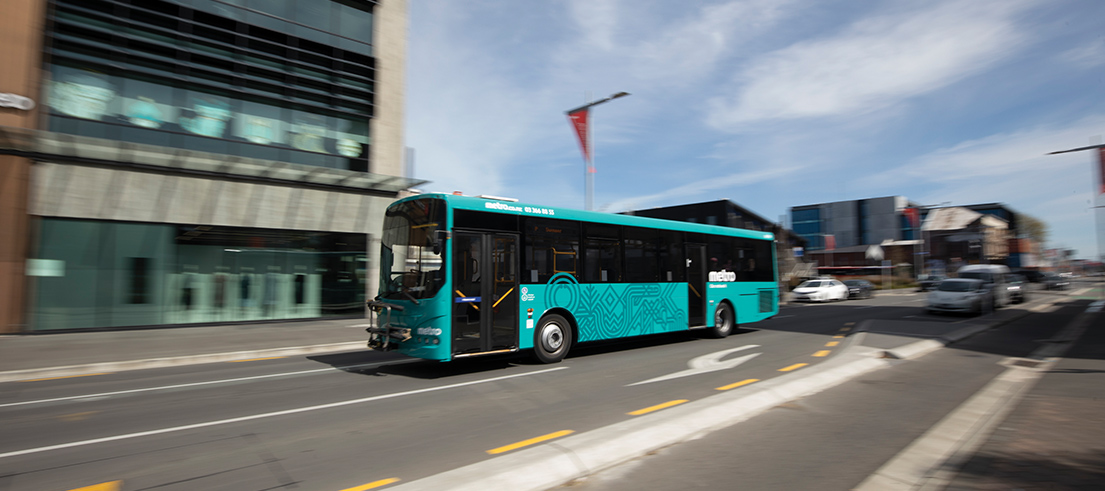
All Canterbury public transport drivers to receive the 2021 Living Wage
Following Council support for public transport drivers across Canterbury to receive the 2021 Living Wage, we are pleased to announce that we have concluded Living Wage discussions with all contracted public transport operators in Canterbury.
Negotiations were concluded in late October with contract variations formalised last week. Payments will be made to operators via our normal monthly contract payment cycles enabling operators to back pay drivers after receipt of this funding.
This will result in all our public transport contracted drivers and ferry crew working for Ritchies Transport, Black Cat Cruises and Go Bus Transport earning a base wage rate equivalent to the 2021 Living Wage.
Drivers will be provided back payment, with a base wage rate of $22.10 per hour for the period from 1 July 2021 to 31 August 2021, and $22.75 per hour for the period from 1 September 2021.
General Manager of Public Transport Stewart Gibbon said it’s great news that all the necessary paperwork is complete, and drivers will now see an increase in their hourly base wage.
“The contract variation process isn’t straight forward, with the need to work with three companies and their different sets of wage rates and conditions, but all parties were determined that we would get an agreement, and we did.”
“We’re really pleased to have this worked in partnership with our operators to complete this in time for the Christmas and summer holiday – we hope this helps support our drivers and reflects the value we place on them in the delivery of our services,” he said.
Funding to support the Living Wage
In July this year, Council approved funding to support public transport drivers to receive the 2021 Living Wage.
In late September, Ritchies Transport and Environment Canterbury reached 'in principle' agreement to pay Ritchies Christchurch drivers the 2021 Living Wage. Contract documentation formalizing this agreement was finalised in early October and drivers have since been paid.
Work was ongoing to formalise the additional contracts with other operators and in Timaru during this time.
With all contract variation processes now complete, all Canterbury Public Transport drivers will be back paid to align their wage with the Living Wage increase from 1 July this year.
Environment Canterbury will fund 49% of the total cost and Waka Kotahi NZ Transport Agency will fund the remaining 51%.
Further information
In 2020, the Government asked Waka Kotahi NZ Transport Agency (Waka Kotahi) to investigate the national cost in adjusting the base wage rate to the Living Wage, of public transport drivers throughout the country.
Public transport authorities (PTAs) then needed to get estimated costs to implement this, which was done through bus operators.
In May this year, Waka Kotahi sent a request to PTAs, strongly encouraging them to support the Living Wage adjustment. They recognised that PTAs have significant fiscal pressures, not the least of which is reduced fare revenue due to COVID-19. Waka Kotahi were clear that their funding only covered this year’s 1 September 2021 Living Wage adjustment until they have considered their position on future adjustments.
In July this year, Environment Canterbury Council approved the investigation and implementation of the Living Wage with the understanding that this needed to be based on the actual amount required to fund this, not previously gathered estimates. Council committed to the Living Wage rate as at 1 September 2021. Dates for implementation were not confirmed, as there were necessary contract variation processes to be undertaken before funding could be confirmed.
The contract variation process was needed to adjust contracts in a fair and equitable way and ensure any driver payments were backdated.
In Canterbury, there were several iterations of numbers provided by operators so as to narrow down the specific components of the cost, to enable Council to confidently apply for Waka Kotahi funding support.
This process was complex, with calculations across a workforce of both full time and shift workers, so due diligence to confirm these numbers was necessary.
Once agreement was reached between us and the operators, we documented these through a contract variation and we can now deliver the funds – the amount which has been agreed to between both parties.
